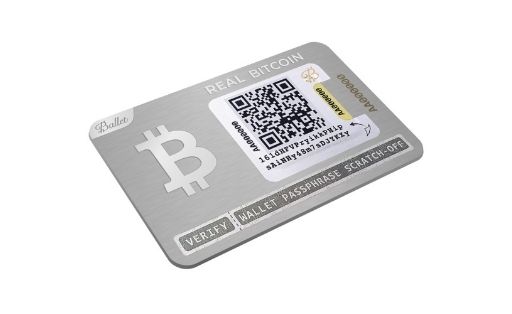Are you still unaware of Cold Storage for Bitcoin? If yes, then today’s article would be super informative, explaining what exactly is Cold Storage for Bitcoin and why they are vital. Before that, you should know What is bitcoin from the experts.
Recommended: Best Cryptocurrency Apps for iOS and Android

Contents
Cold Storage is an Effective Container for Safekeeping Bitcoin
Most of the time, regular wallets will help investors by providing security to some extent. Still, if the users’ password gets stolen or forgotten, then the user has too few options for regaining the coins that are stuck in the wallet due to the loss of the password. So, to get started with one master solution for resolving this issue is the implementation of cold storage. The safety measures taken by the cold storage are far better than the traditional wallets that investors use. Cold storage provides an efficient and offline device for keeping your Bitcoin. The result? Your Bitcoin or other crypto possession would be far from the internet. Since Bitcoins are preserved offline, any threat from hackers will instantly vanish. Just off-grid!
But despite such benefits, cold storage might be inconvenient for few users since they might need proper hardware, and neither backup solutions are as effective. One tangible way, however, is keeping actively-used Bitcoins in digital wallets and the rest in cold storage devices, kind of like keeping your cash in both wallet and locker at the same time!
Methods of Cold Storage
There are few methods and industry standards of cold storage that investors can follow to store their Bitcoins safely.
1) Paper Wallet:
Such options are remarkably safer for Bitcoins against hackers and also prevent private keys from malfunctioning on computers. This method involves the printing of private keys and even public access on the piece of paper. Even QR codes can be printed on paper, scanned, and transactions can be made. As the paper will contain all the proper information that is essential in order to spend the coins, the safety of the transactions is also ensured.
2) Hardware Wallet:
Just like security keys for your passwords and credentials, your crypto assets can also be stored on different hardware-specific devices, such as hard drives and USB drives. These devices, however, are entirely detached from the internet or any form of networking, and in many cases, are rugged. Two-factor authentication can also be implemented alongside biometrics for an even more secure safekeeping of your valuable crypto possession.
3) Sound Wallets:
Even after being one of the rarest methods of cold storage for Bitcoins, Sound Wallets can resist security threats to great extents, while your private keys can be stored inside encrypted USB drives and even CDs. The technology, however, is far more advanced than Google-scrollers would be allowed to read, and neither experts weren’t happy enough when we asked the same question. So, for now, there’s no way of knowing how they function.
Just a bit of advice that none of the information contained in this article should influence the handling of your financial assets. If you found this article informative, be sure to check other articles on cryptocurrencies. Catch you in the next one!
Recommended Reading:
